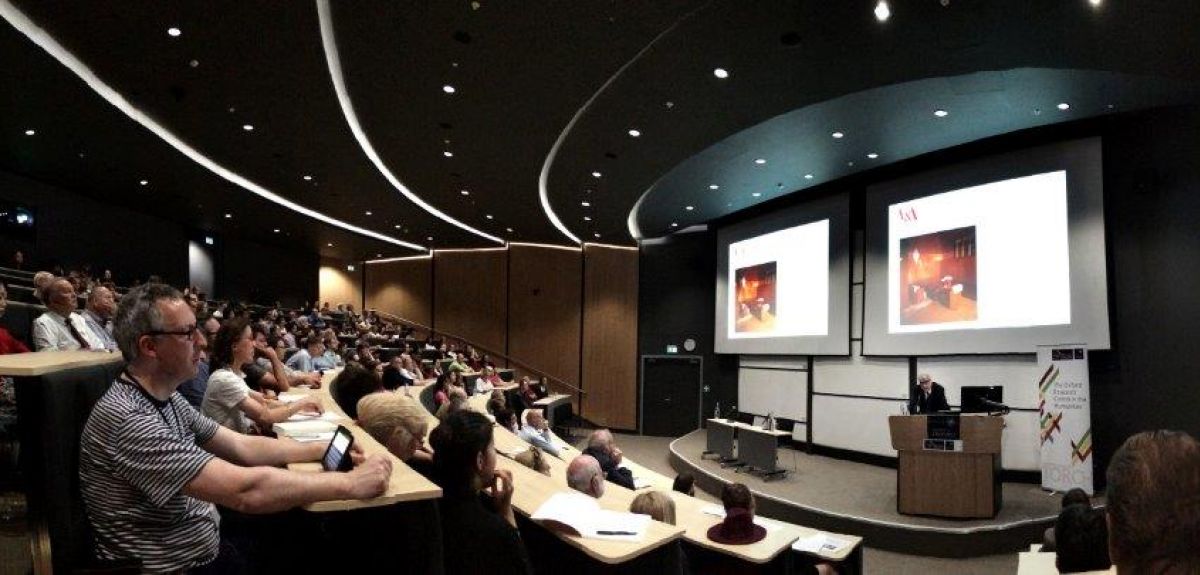
Discussing the digital future of the humanities
Delegates from around the world came to Oxford to learn about the ways in which new technology is changing the humanities on last week's Digital Humanities at Oxford Summer School (DHOxSS).
They also heard a talk from Martin Roth, director of the Victoria and Albert Museum, who spoke on the ways museums may change in response to new technologies.
From digitised archives and online reference material, to web-based teaching, online exhibitions, crowd-sourced research, and even app development, the “digital humanities” span a huge range of activities.
DHOxSS aimed to help researchers and students develop the skills and expertise to devise their own projects. It also gave them a chance to network: where traditional humanities might involve solitary work in the library, digital humanities research is often collaborative.
'Oxford has been very central in the development of digital humanities. It's always been at the forefront of using digital technologies to help humanities research,' said James Cummings, the director of DHOxSS. 'We offer a general introduction to digital humanities, as well as more technical courses, including digital libraries and curation.'
One digital humanities project at Oxford, CatCor, aims to produce a searchable online archive of the correspondence of Catherine the Great. Meanwhile, TopBib, a comprehensive bibliography of the monuments and artefacts of ancient Egypt, makes one of the longest-running research projects at Oxford available to the public online.
Public involvement is at the heart of many digital humanities projects, from open archives and online exhibitions, to large-scale calls for public contributions, as in the “citizen science” project, Ancient Lives, which involved 250,000 volunteers transcribing Greek papyrus documents on their own computers.
One of the highlights of the summer school was an open lecture by Martin Roth, director of the Victoria and Albert Museum. He spoke about how museums can both survive and flourish in the digital age by using technology as a tool for democratisation, perhaps even leading to a reinvented museum without hierarchy.
'Martin Roth's talk was fascinating to practitioners of the digital humanities and interested members of the public alike,' said Stephen Tuck, director of TORCH | The Oxford Research Centre in the Humanities, which hosted the lecture.
'It was interesting to hear how advances in digital design and media have changed museum practice while curatorial principles have remained the same since the 19th century.'
The summer school was organised by the University of Oxford's IT Services, the Oxford e-Research Centre (OeRC), the Bodleian Libraries, the Oxford Internet Institute (OII), and TORCH |The Oxford Research Centre in the Humanities.